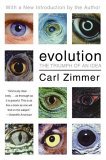Here's something to ponder in the wake of Jason Bush's talk, as we await the next lecture (on April 23rd) in the Ethics Center Seminar series where theologian Ted Peters (author of The Stem Cell Debate) will take up some of the more sticky moral controversies that Jason punted on last week! While a lot of the opposition to stem cell research in the US comes from the religious right, especially over the issue of embryonic stem cell research, there is opposition from the left as well - especially the "alternative medicine" left which sees everything in western medicine as being somehow tainted and unnatural. And then, by (illogical) extension, that any other "alternative" to western medicine is therefore much better for you, even if practitioners of said alternative don't have a clue about how their medicine works, if it works at all! But what if "eastern" medicine starts offering therapies based on stem cell research (and other products of "western" science)? And start doing so when such therapies are not available here in the west? Skeptico raises this question in an interesting commentary on an NPR story about how some Americans are heading to China seeking stem cell therapies not available in the US. In addition to the welcome and enjoyable bashing of irrational "skeptics" like Bill Maher, Skeptico makes this important point:
The truth is, ancient people, who did not understand how the body works or what really made people ill, just made stuff up about these things. The ancient Chinese made up stuff about meridians and chi. Ancient Indians made up stuff about chakras. Ancient Europeans made up stuff about humors. We now know better, and so have abandoned humors and bloodletting. The only mystery is why people still insist that chi and chakras are real. But whatever you believe is real, the distinction clearly is not between “western” and “eastern” (fill in your preferred country) therapies. The distinction is between therapies that work and those that don’t. Scientists in China are researching real medicine, and trying to find out what works and what doesn’t, just like scientists in the west. Maybe some have oversold their results, but scientific procedures, not ancient myth, will ultimately decide what works and what doesn’t.
So can we now please abandon this pretence that doctors in the west practice something called “western medicine”, while the Chinese have access to some secret knowledge that “western science” still hasn’t yet caught up with? There is only medicine that works – or at least, is backed by reliable evidence that it does – and pre-scientific superstitious quackery that doesn’t. The East/West labels mean nothing. And the next time some twit like Maher intones gravely against “western medicine”, just say, “yeah, I don’t fancy bloodletting either” - and advise him to go visit Doctor Hu in Hangzhou. Preferably on a one-way ticket.
I've always thought that the main criterion in medicine is whether it works. Even if we don't fully understand underlying mechanisms! Any good medicine should aim to cure the afflicted, without getting caught up in its own dogmas about how the human body is supposed to work. Figuring out the "how" and "why" of any successful medicine - well that's the job of science. That's why you can have many "alternative" medicines, but only one science - for there is no western or eastern science once we understand how any particular disease and its cure works, is there? And on the flip side (and this may raise some of your hackles), that's why medicine (even in the west) isn't always necessarily a science either!








0 comments:
Post a Comment